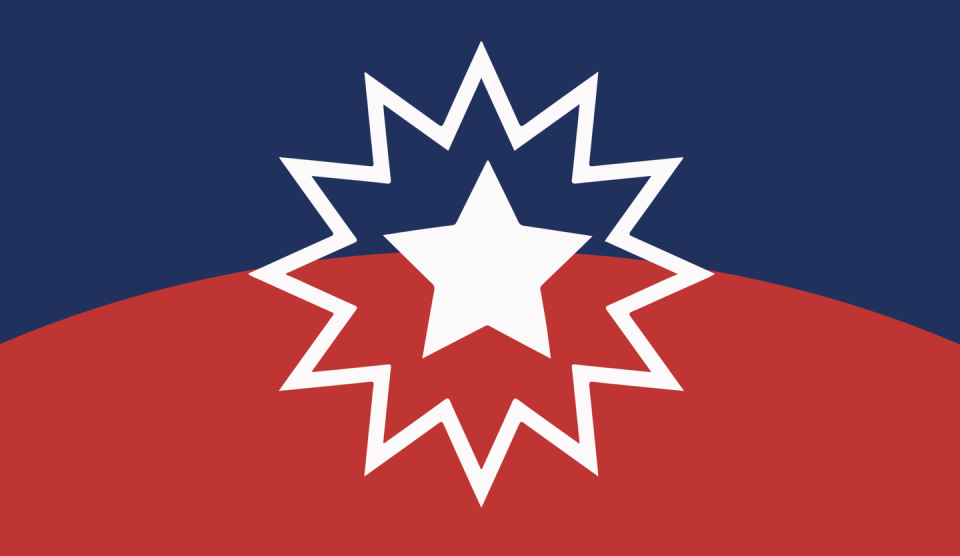Here's Everything You Need to Know About Juneteenth and How to Celebrate

Juneteenth is a holiday deep within American history. It not only celebrates the day enslaved African and African Americans became free people in this country; it's a day full of tradition that honors the people who came before us. Although there's no right way to celebrate the day, it can been seen as a day to reflect on how far this country as come in terms of racial equality and how far it has to go. Here's everything you need to know about Juneteenth.
What is Juneteenth?
Juneteenth, also known as Freedom Day and Jubilee Day, is an annual holiday celebrated on June 19. It commemorates the end of slavery in the United States, specifically when, on June 19, 1865 Major General Gordon Granger and a group of soldiers from the Union brought news to Galveston, Texas that enslaved people were now free.
How do people celebrate?
Juneteenth has been celebrated since 1865. According to PBS, Texas was the first state to recognize Juneteenth as a holiday. Since then, 47 states and D.C. have marked it as a state holiday or observance. Companies like Twitter and Square have made Juneteenth a company holiday. Still, it isn't an official federal holiday, although activists have campaigned for years to make it one.
Different people around the world celebrate Juneteenth in different ways. There are festivals and marches all over the country, but you can also keep things local and have a cookout with your family and friends. There’s no one way to celebrate Juneteenth, and you can do what feels right to you and make the holiday your own.
What’s the difference between Juneteenth and Independence Day?
July 4th is America’s birthday, and commemorates when the Declaration of Independence was signed in 1776, freeing the country from British rule. But that freedom didn’t apply to Black people. Slavery was still legal when the Constitution was signed, and enslaved people weren't granted freedom until almost 90 years later.
Didn’t Abraham Lincoln end slavery?
Yes, but also no. The Emancipation Proclamation signed by Lincoln in 1863 literally does say the following:
“I do order and declare that all persons held as slaves within said designated States, and parts of States, are, and henceforward shall be free; and that the Executive government of the United States, including the military and naval authorities thereof, will recognize and maintain the freedom of said persons.”
This wording does sound nice, but unfortunately, the Proclamation only applied to states that had seceded from the Union and it could not be enforced everywhere until the Civil War ended in 1865. Slavery wasn't abolished all over America until the 13th amendment was ratified on December 6, 1865.
On top of that, at that time, communication wasn’t anything like it is today, and TV and the internet didn't exist. It wasn't until nearly two years after the Emancipation Proclamation that news of the end of slavery actually reached all enslaved people. There were other factors preventing the news from reaching all who were enslaved, like messengers being killed and slave owners intentionally withholding the information. Union soldiers were finally able to get the message across after the commander of the Confederate States Army, General Robert E. Lee, surrendered to President Ulysses S Grant on April 9, 1865. The following year, those who had been enslaved celebrated their freedom on June 19 in Galveston, and Juneteenth spread across the country and has been celebrated every since.
What does the Juneteenth flag symbolize?

The founder of the National Juneteenth Celebration Foundation, Ben Haith, created the flag in 1997. It was later revised in 2000 to what we know today by L.J. Graf and the date, June 19, 1865, was added back in 2007. The foundation’s website says the flag was made to be red, white and blue since those are the colors of the American flag and to declare that enslaved Americans, as well as their descendants, are all Americans. The star represents the birthplace of the holiday, Galveston, Texas since Texas has a star on its own flag. Graf says that the bursting star that surrounds it symbolizes, “a new freedom, a new people, a new star.”
You Might Also Like

